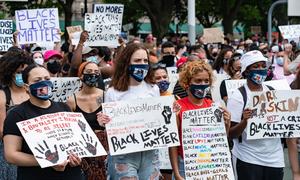lesson
The Color of Law: Developing the White Middle Class
This lesson is the third and final lesson of the series The Color of Law: The Role of Government in Shaping Racial Inequity. In this lesson, students examine policies that supported and cultivated the creation of the white middle class and the practices that excluded black and nonwhite people from economic development.
October 10, 2019




